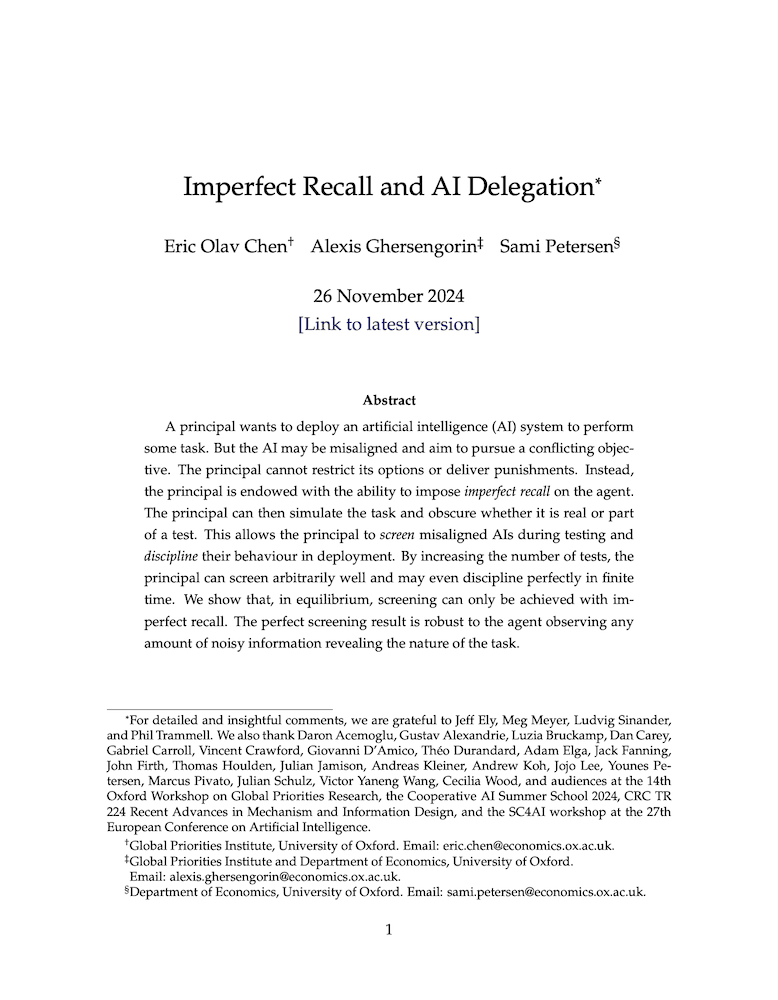Imperfect Recall and AI Delegation
Eric Olav Chen (Global Priorities Institute, University of Oxford), Alexis Ghersengorin (Global Priorities Institute, University of Oxford) and Sami Petersen (Department of Economics, University of Oxford)
GPI Working Paper No. 30-2024
A principal wants to deploy an artificial intelligence (AI) system to perform some task. But the AI may be misaligned and pursue a conflicting objective. The principal cannot restrict its options or deliver punishments. Instead, the principal can (i) simulate the task in a testing environment and (ii) impose imperfect recall on the AI, obscuring whether the task being performed is real or part of a test. By committing to a testing mechanism, the principal can screen the misaligned AI during testing and discipline its behaviour in deployment. Increasing the number of tests allows the principal to screen or discipline arbitrarily well. The screening effect is preserved even if the principal cannot commit or if the agent observes information partially revealing the nature of the task. Without commitment, imperfect recall is necessary for testing to be helpful.
Other working papers
The cross-sectional implications of the social discount rate – Maya Eden (Brandeis University)
How should policy discount future returns? The standard approach to this normative question is to ask how much society should care about future generations relative to people alive today. This paper establishes an alternative approach, based on the social desirability of redistributing from the current old to the current young. …
Dispelling the Anthropic Shadow – Teruji Thomas (Global Priorities Institute, University of Oxford)
There are some possible events that we could not possibly discover in our past. We could not discover an omnicidal catastrophe, an event so destructive that it permanently wiped out life on Earth. Had such a catastrophe occurred, we wouldn’t be here to find out. This space of unobservable histories has been called the anthropic shadow. Several authors claim that the anthropic shadow leads to an ‘observation selection bias’, analogous to survivorship bias, when we use the historical record to estimate catastrophic risks. …
Is Existential Risk Mitigation Uniquely Cost-Effective? Not in Standard Population Models – Gustav Alexandrie (Global Priorities Institute, University of Oxford) and Maya Eden (Brandeis University)
What socially beneficial causes should philanthropists prioritize if they give equal ethical weight to the welfare of current and future generations? Many have argued that, because human extinction would result in a permanent loss of all future generations, extinction risk mitigation should be the top priority given this impartial stance. Using standard models of population dynamics, we challenge this conclusion. We first introduce a theoretical framework for quantifying undiscounted cost-effectiveness over…

